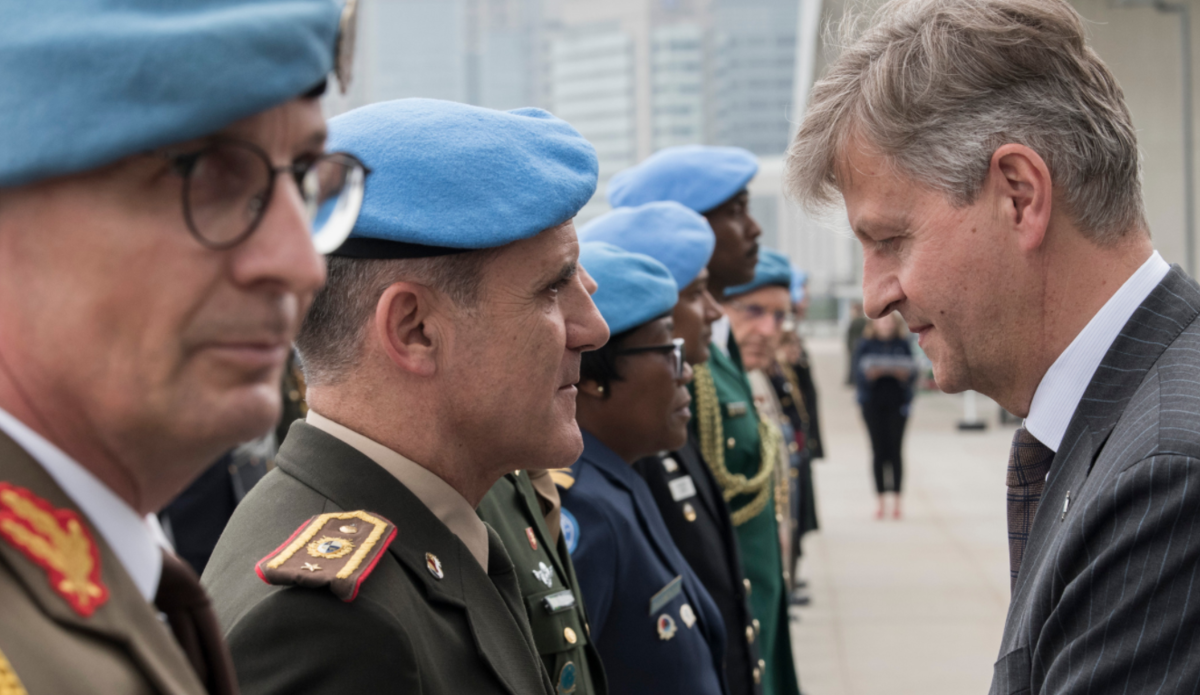The COVID-19 pandemic is also developing in countries marred by armed conflict. In an op-ed featured in Le Monde, the head of United Nations Peacekeeping, Mr. Jean-Pierre Lacroix, underlines the role UN peacekeepers can play together with Member States.
No one, no community, no country, is immune from this deadly pandemic. This is a crisis of global dimensions, with devastating human, social and economic impacts as we have seen from what is already happening around the globe. As the head of UN Peacekeeping, I am particularly concerned about those areas where COVID-19 will intersect with armed conflict.
People in already fragile political environments, where individuals are living in conflict- affected or post-conflict societies with little to no infrastructure or social and sanitary safety nets, are especially at risk. How do you wash your hands without access to clean water? What now for women who pay a disproportionate toll as frontline responders and caregivers, and who could lose their ability to feed their families because of collapsing economies?
And what if, on top of all of this, people are living under the threat of armed groups or terrorist acts? Just as the body cannot defend itself as well with a compromised immune system, populations that are deprived of functioning health systems and support networks are even more vulnerable to the pandemic and its consequence. The same can be said for the places where our peacekeepers operate—vulnerable civilians there are the most at risk.
Continuing our mission to promote conflict resolution
United Nations peacekeepers are not the remedy for COVID-19, but in many places they are a part of the treatment plan. Peacekeeping operations must be able to continue their work and to maintain operational capability, so we can deliver on our life-saving mandates—promoting conflict resolution and protecting the populations we serve, as well as our UN personnel.
In countries such as the Democratic Republic of the Congo, the Central African Republic, Mali and South Sudan, where peace is fragile and populations have already suffered too much, our missions are supporting state authorities and other partners. Following World Health Organization guidance, we continue to patrol while applying social distancing rules and we have stepped up our use of online resources.
We are continuing to provide what direct assistance we can including by protecting humanitarian supplies and depots. Our aircraft are flying at a time when many others are not. As always, this is a partnership. The Member States who provide our police and military personnel are working with us to suspend or postpone planned deployments and rotations.
It is time to silence the guns
Having the blue helmets stay on the ground to help counter this pandemic is an important step in helping host countries tackle this challenge. In this regard, we need the support of our Member States now more than ever, in line with the Secretary- General’s Action for Peacekeeping (A4P) initiative which remains at the core of our work. Their willingness to stand firm in their commitment to peacekeeping operations is central to our ability to assist.
On the ground, we quickly added additional precautionary measures including quarantine and containment of incoming personnel in cooperation with host country authorities. Our missions are also working closely with national authorities to support their response. We are providing multi-faceted support: we are facilitating remote communications thanks to our technological means, we are helping to ensure critical supply chains are maintained, and our personnel are raising awareness on the coronavirus within communities, through local radio and digital media platforms, as well as during patrols.
The fight against this deadly virus--our common enemy—requires all of us to be united and act together. All the UN peacekeepers who are currently deployed deserve our gratitude and support; these women and men continue to serve under the blue flag in the cause of peace, in conditions even more difficult due to COVID-19.
Thanks to them, efforts to consolidate peace have not weakened, despite this virus which they are helping to fight. On March 23rd in New York, the UN Secretary-General stated that “it is time to put armed conflict on lockdown and focus together on the true fight of our lives”, calling on warring parties around the world to commit to a global ceasefire. Our missions have spread this message and we are repeating it now—it’s time to silence the guns.
Jean-Pierre Lacroix
This op-ed was initially published in French in Le Monde on April 2nd, 2020. [FR]
(Photo credits: UN Photo)

